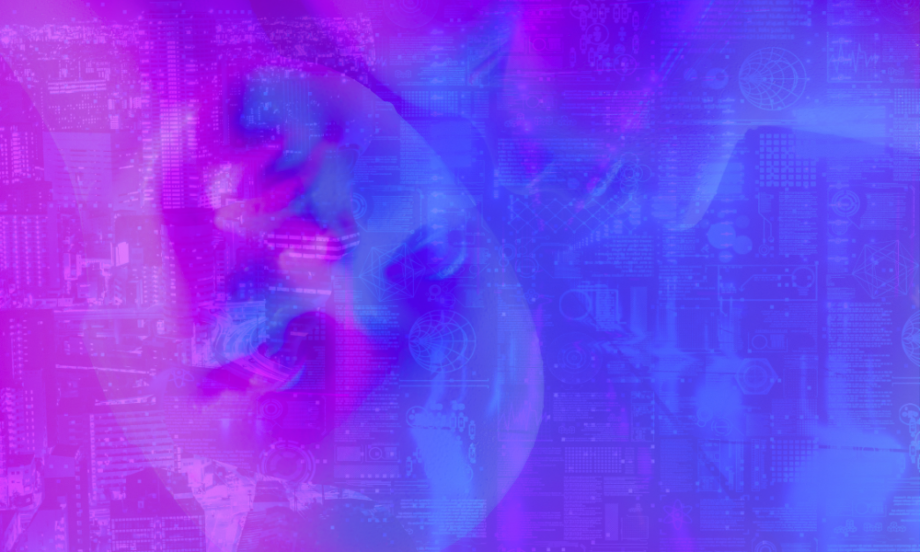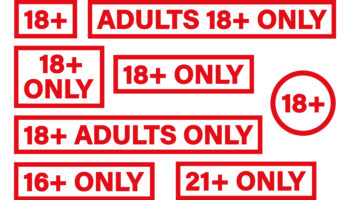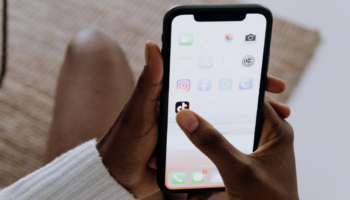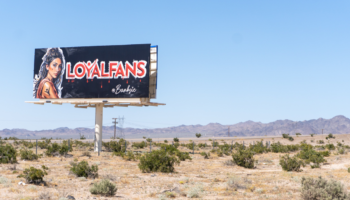In recent years, social media giants like Facebook, Instagram and TikTok
have ramped up their efforts to enforce stringent content guidelines, taking a firm stance against sexualized material. Their supposed zero-tolerance policies has resulted in the banishment and censorship of sex workers and disciplinary actions against educators and artists discussing sexual health, education and safety.
But guess what? Someone's still making money on sex work social media platforms - and it isn't sex workers. A novel form of sexualized content has emerged, despite social media moderation systems. According to reporting by NBC News, tech startups have been running explicit advertisements on platforms like TikTok, Instagram and Facebook, luring users with promises of not-safe-for-work (NSFW) content and uncensored chats. These ads frequently showcase digitally created "girlfriends" clad in revealing attire, some of whom appear to be minors.
This phenomenon raises a pressing question: Why are these apps allowed to profit from content resembling sex work or adult content when real adult content creators are banned from doing so?
According to Dr. Tiffany "K.", Ed.D., M.A., C.S.E., board certified sexologist, creators of NSFW AI content are launching Patreons exclusively featuring explicit non-human content. On DeviantArt, they're selling downloads and albums. Video-to-video AI generators are transforming TikTok and Instagram clips into nude versions for distribution on other platforms. Discord now allows servers to monetize through subscriptions, offering little to no regulation as long as content channels are tagged as NSFW/mature. In other words, money is being made on or aided by all sorts of sites that cracked down on content created by sex workers - and even sex educators and artists.
Read: How Doing Sex Work Helped Me Love Myself
Sexual Content Moderation and the Patriarchy
Clearly, a double standard persists in the moderation of sexual content, impacting sex work, sex education and adult content creation. So what's going on? First, we can chalk it up to the patriarchy. In fact, this bias against sexual content has deep historical roots in patriarchal norms and values.
Throughout history, patriarchal societies have often enforced strict control over expressions of sexuality, contributing to the stigmatization and censorship of sexual content. The stigma often leads to more stringent moderation of sexual education content than other content categories.
Content moderation algorithms, designed to detect explicit human-created content, may struggle with AI-generated material due to its variability and lack of clear categorization. Consequently, this stigma can result in inconsistent enforcement of content guidelines across various online platforms and content hosting providers. It's also content that can be built at a pace that real content creators simply can't match, allowing it to proliferate, undiscovered, in all corners of the internet.
Carol Wersbe, Chief of Staff of the Center for Intimacy Justice, points out that platforms prioritize content related to male pleasure while removing content focused on women's health and other underrepresented gender-related topics. She suggests this reflects the inherent bias within the algorithms themselves, underscoring the larger issue of gender-based stigma, silencing and underfunding. "The bias there is so obvious," she said. "AI is just a continuation of the stigma, and it just really represents that women's health is shamed, is silenced, is considered dirty, and underfunded."
Defining What's Explicit
For example, the platforms tend to view nude depictions of humans as crossing a line. In contrast, AI-generated depictions, including intimate encounters with non-human entities, are often deemed acceptable as art rather than explicit material.
It doesn't help that everyone has their own interpretation of what is spicy, erotic, or straight-up porn. "The one thing that seems to be a constant, however, is that these platforms view nude 'humans' as going a step too far," Dr. K said, "but AI-generated humans, or women fucking monsters with tentacles is considered fine since they are 'art' rather than photos or videos of consenting engagement between humans."
This, of course, makes the playing field more unequal than ever for sex workers. "With more and more sex workers being banned, taken down, or their content getting leaked across the internet, and AI taking center stage, it's becoming a larger problem since the playing field is far from equal," Dr. K said. "While sex workers are certainly not strangers to
having an unequal playing field on social media, getting hit in the face
constantly on Instagram with the amazingly beautiful art of a nude fairy, for example, also comes with a sting of 'Why is this OK and my body isn't?'"
AI-generated erotic content isn't just an issue for sex workers, educators, adult content creators and artists. "It's a massive issue right now for anyone who is in the field of creating digital content because there are so many 'content creators' popping up on Patreon, Deviant Art and across social media that are creating HIGHLY sexually explicit content for paywall sites like Patreon and other platforms like Reddit and XXX discord servers using AI generators that often feature celebrity likenesses," she says. She explains that this can be done using Stable Diffusion on a gaming P.C., although it may take a little coding knowledge and some know-how. "All it takes is 10-100 images of a single person to create enough data for an AI generator to replicate it with extreme accuracy – no Photoshop required."
Although Dr. K. says that platforms are beginning to address concerns about labeling AI-generated or altered content, many platforms still lack clear guidelines for content creators.
"Deviant Art requires the use of a simple check-box that designates the art as AI-generated. TikTok now has an attribute you must use if an uploaded video has been significantly altered or fully created
using AI tools," she says. Clearly, platforms are taking notice of the
public's concerns around AI-generated content, notes Dr. K, and while there isn't a ban on it, there is a significant push to at least segment it out.
Read: How Sex Workers Are Providing Sex Education
Erotic AI-Generated Art and the Future
Dr. K. acknowledges the complex nature of this issue, recognizing valid
concerns from both sides of the argument. "On one side, artists who have a true and crafted skill feel AI is going to damage the (art) industry because businesses are going to flock to cheaper/faster ways to get the content they need for marketing purposes," she said.
"On the other hand, I also see AI as a way to be a starting point for artists to get ideas they wouldn't otherwise have come up with and to use it as a tool rather than a competition," she says. She believes it may even drive up demand for "human-generated" art, and the value of craftsmanship from real human hands.
And when it comes to AI-generated erotic content, maybe, Dr. K. says, this is a first step into helping the world become more tolerant by slowly tempering society to start seeing nudity and sexuality as something to be celebrated. "Perhaps it won't stay a double standard forever, and AI-generated content is going to help us get there," she says. "Or maybe I'm the eternal optimist and prefer adaptation over being angry about something I can't fix."
To learn more about what the Center for Intimacy Justice is doing to fight Meta's discriminatory censorship of sexual health information for women and people of underrepresented genders, visit here.




